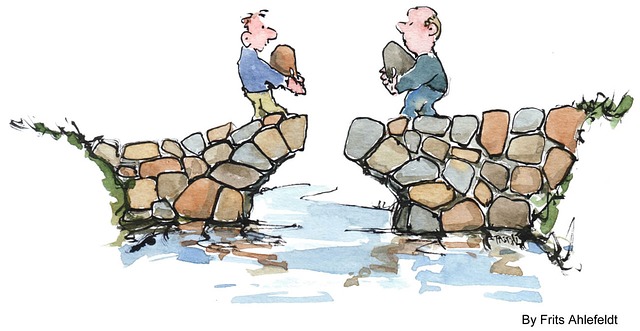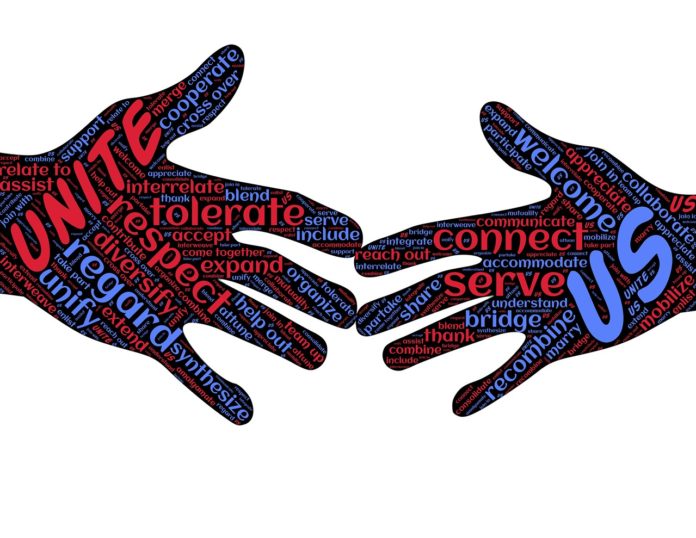People like to say that the political situation in the United States is more polarized than at any other time in modern history. This issue isn’t one that is exclusive to Americans; however, as many societies and cultures around the world are struggling with severe divides.
Conventional wisdom says that the idea of talking about politics at the dinner table might not be a good one. Avoiding this topic altogether is not a realistic outcome either.
The best approach you can take is to agree to disagree while having a respectful conversation about your differences. When you can erase contempt for people who are on the other side of the political aisle, then you can have a pleasant family gathering where the focus is on togetherness instead of what is happening in the government.
Best Ways to Handle Politics at Home

Whether you want to manage the usual family meal after work and school better or you’re about to celebrate a holiday get-together, the state of politics today means that your seating arrangements need to have a review.
If you have someone who always seems to be itching for a fight, then separate those who are ready to throw down before the turkey gets served. Placing passionate political family members between those who tend to be more diplomatic will help to ensure all sides of the debate receive attention in the discussion.
Here are some other ideas you can try to implement to keep things relatively calm when politics are at the dinner table.
1. Avoid serving alcohol if you expect a spirited debate.
Most people will handle themselves reasonably at the dinner table when speaking about politics. Partisan politics might be at a boiling point right now. People might see the other side as being more selfish and ignorant than in more than a generation, but those feelings stay reserved around family. Once everyone has a few glasses of wine or are deep into a 12-pack of beer, the results can be very different.
2. Make a rule that everyone must listen to each key point.
Pew Research found in 2018 that 53% of people in the United States found that the process of talking politics with people they disagree with as a stressful and frustrating experience. If you want to control the emotions in the conversation, then you’ll need to set some ground rules for everyone to follow. If you set these guidelines that let everyone have a fair turn, then you’ll need to send those who can’t follow the expectations to a different table.
3. Realize that no one’s opinion is going to change.
The odds of getting someone in your family to switch their political opinion as you’re passing the mashed potatoes and gravy is one that is unrealistic. Most people are going into a political discussion to defend their opinion. If you have enough trust with someone and a positive rapport with them to make the conversation construction, then go for it. You’ve already agreed to disagree before starting it.
If you feel like it might turn into a shouting match instead, then it might be a better idea to leave the conversation alone.
4. Most conflicts eventually resolve themselves through negotiation and compromise.
Over the past 200 years, over 95% of international rivalries concluded because the people involved were willing to look past their differences so that they could find some common ground. If you go into a political conversation at the dinner table, then this perspective can help to keep things calm for everyone. There will always be a few outliers that will resist finding a solution, but the odds are definitely in your favor.
5. Stay away from online conversations before dinner.
When people are online, they do not have the same filter that is present when having a face-to-face conversation. More misunderstandings happen as well. It is much more difficult to convey emotions through social media or text, even if your emoji use is at an expert level. If you think there might be trouble at the dinner table, then it’s a good idea to stay away from your family’s Facebook posts before you eat.
6. Go into the conversation with a winner’s approach.
Most political discussions involve each person trying to win the debate at the dinner table as a way to validate their perspective. If you really want to walk away with a full belly and a winning attitude, then take the approach that you want to save the relationship with that person. Remember why you like that individual and what they contribute to your family. If you make some plans in advance to ensure everyone can be heard, then the discussion tends to be more amiable.
7. Redirect the conversation to a different topic.
If all else fails and nothing good is coming from the political discussion at the dinner table, then try to redirect the conversation to a different topic. You might suggest that the stubborn uncle start talking about their vacation that summer instead of politics because you’d love to hear their stories. It won’t guarantee a stoppage in the debate, but you’ll at least get a dose of family news with the political arguments.
Do You Avoid Politics at the Dinner Table?

When there is a political discussion around the average dinner table in the United States, 70% of people go into the dialogue believing that they are good listeners. Only 30% of people say that they feel understood afterward.
Instead of trying to defend a political party or a specific socioeconomic class, talk more personally with your family members. Talk about yourself instead of using generalizations. When people understand how your life experiences contribute to your political leanings, then it is much easier to agree to disagree.




